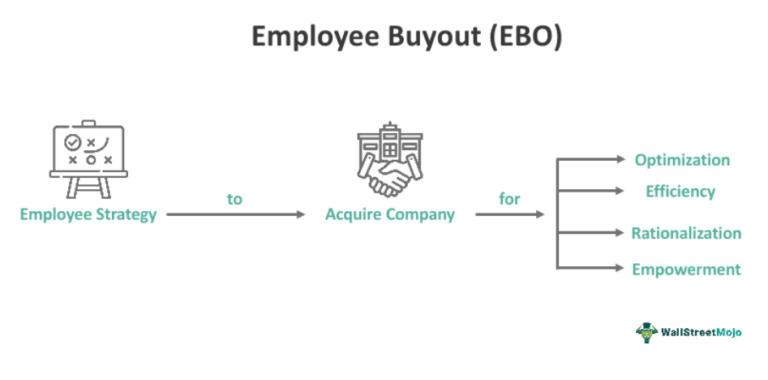
The Legal Rollercoaster: What’s Happening with Federal Employees and the Trump Administration’s Deferred Resignation Offer
In the heart of the nation, where government decisions impact millions, a recent ruling by a federal judge has sent shockwaves through the world of federal employment. Imagine being in a position where your job security hangs in the balance, and you have to make a major life decision with little information. This is the reality for many federal employees as they grapple with the Trump administration’s deferred resignation offer. This article aims to break down what this means, why it matters, and how it has stirred up quite a debate.
What’s the Big Deal?
First things first, let’s unpack what the deferred resignation offer is all about. The government, looking to reduce its workforce, has been allowing employees to resign and receive a pay check until the end of September. Sounds generous, right? Well, there’s more to it. The offer is part of a broader plan by the Trump administration to cut costs and streamline federal agencies.
To put this in perspective, over 65,000 federal workers have taken this offer, which can sound impressive at first. However, this group only represents about 3% of the total eligible federal workforce. What does that indicate? Many employees are hesitant and uncertain about whether to accept this financial offer or stick it out in their current positions, which may or may not last long enough to offer them job security.
The Legal Battle Heats Up
Enter the American Federation of Government Employees (AFGE) and other unions. These organizations are like the superhero squads for federal workers, striving to protect their members’ rights. They have stepped up to challenge the legality of the Trump administration’s resignations offer. They argue that the government needs to clarify what the future looks like for federal jobs, particularly in light of potential layoffs. Knowing whether your job is at risk can be the key difference between making a decision or remaining in suspense.
In the wake of the lawsuit, a federal judge decided to grant a pause on the deadline for federal employees to respond to this resignation offer, moving it to Monday. Why is this significant? Pausing the deadline means that employees now have a little breathing room to contemplate their options. It’s akin to getting an extension on an important homework assignment—so, they get a little more time to figure things out.
The Pushback from Federal Unions
The unions, while advocating for their members, have been very vocal about the risks tied to accepting this offer. They are advising employees to think twice before jumping on the bandwagon. The unions have raised alarms, describing the terms of the resignation as “unreliable.” What does that even mean? For someone considering a resignation, it raises a huge red flag, suggesting that there could be hidden consequences or issues that haven’t been disclosed yet.
With 3% of the workforce taking up the offer, it’s clear that many employees are choosing to play it safe rather than risk an uncertain future. This reluctance highlights a critical aspect of employment—job security. Think about it: would you trust a deal that might lead to job loss for not taking action? Most people would hesitate, and federal workers are no different.
Why All This Matters
So why should we care about what’s happening with federal employees? For starters, federal workers support the backbone of public services and programs that we all rely on. From national parks to safety inspections, federal jobs help keep our society running smoothly. If a mass exodus of experienced workers happens due to administrative decisions, the consequences could ripple throughout the country, affecting everyone from taxpayers to service recipients.
Moreover, this situation spotlight the broader theme of workers’ rights. The unions’ fight against the administration’s offer isn’t just about one program. It embodies a struggle for job security and maintaining civil service protections that have been put in place to benefit employees. We’ve all heard about how important it is to stand up for our rights in school, at work, or anywhere else. The same logic applies here; when workers fight for their rights, they are also fighting for future generations who will occupy those jobs.
The Implications of Job Loss
If you’re still unconvinced about the gravity of the situation, consider the potential ramifications of widespread job loss among federal employees. When a large group of dedicated workers resigns, the government might find itself scrambling to fill the gaps. Have you ever had a group project where one person dropped out? You probably felt the pressure to pick up the slack. Imagine that on a national level, where the stakes are much higher.
Also, job loss can affect more than just the individual. Families, communities, and even the economy can feel the impact. Think about what happens when people lose their jobs—spending goes down, local businesses can be affected, and unemployment rates can rise. In times of economic uncertainty, such situations create a domino effect that nobody wants to see.
What’s Next?
As it stands, federal employees now have a little more time to ponder the offer made by the Trump administration while the courts figure out whether the terms and actions are legitimate. It remains to be seen how many more workers will take this offer and what the landscape of federal employment will look like moving forward.
So, how do you feel about federal workers and their fight for job security? Do you think the government should provide clearer guidelines to protect its employees, or does this kind of restructuring make sense in the context of budget cuts? Whatever your thoughts, it’s important to stay informed because these issues can affect not only the workforce but everyone living in the country.
Let’s keep this conversation going! Have you ever felt uncertain about a significant decision regarding your future? What would you do if you were in the shoes of the federal employees facing these choices? Share your thoughts in the comments below!





